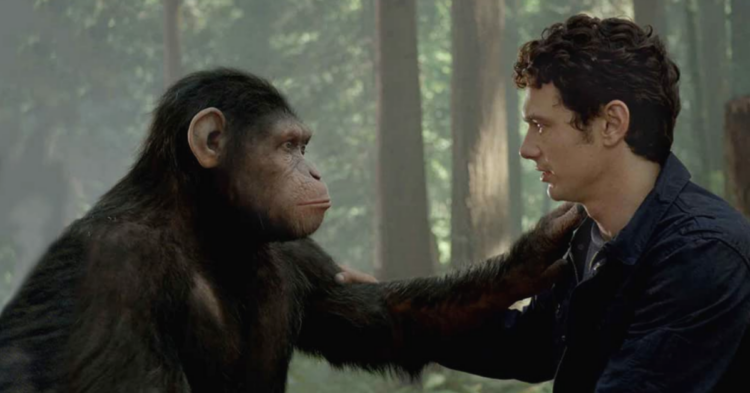Japanese and German researchers found that injecting the ARHGAP11B gene, which governs brain growth, in monkeys increased the size of their neocortex. The neocortex only recently evolved. This study indicates that the ARHGAP11B gene played a role in this evolution. If this experiment sounds a little familiar, it might be because it is reminiscent of the 2011 movie Rise of the Planet of the Apes . In the movie, a race of genetically modified primates rises up against humans.
The ARHGAP11B gene is only found in humans.

Researchers suspected that the gene was responsible for growing larger brains. When they injected the gene into mice, their brain size increased. However, the researchers did not know what effects it would have on primates.
This is the first primate study.

In this study, researchers injected the gene into marmosets, which are small new world monkeys. The aim of the study is to better understand how humans evolved larger brains. The ARHGAP11B gene evolved from the more common ARHGAP11A gene five million years ago. It would have also been present in the Neanderthals and Denisovans.
The research confirmed that the gene plays a role in the evolution of the brain.

Michael Heide a researcher on the team, explained :
“We found indeed that the neocortex of the common marmoset brain was enlarged and the brain surface folded. Its cortical plate was also thicker than normal. Furthermore, we could see increased numbers of basal radial glia progenitors in the outer subventricular zone and increased numbers of upper-layer neurons, the neuron type that increases in primate evolution.”
Researchers experimented on monkey fetuses.

None of the modified monkeys were fully grown and birthed. The researchers were not sure what effects the gene would have on the development of the monkeys. They felt that it would be unethical for the monkeys to be carried to term. Although the ethics of the entire endeavor could be questioned, at least there are no genetically enhanced smart apes on the loose.
h/t: Eurek Alert!
















































